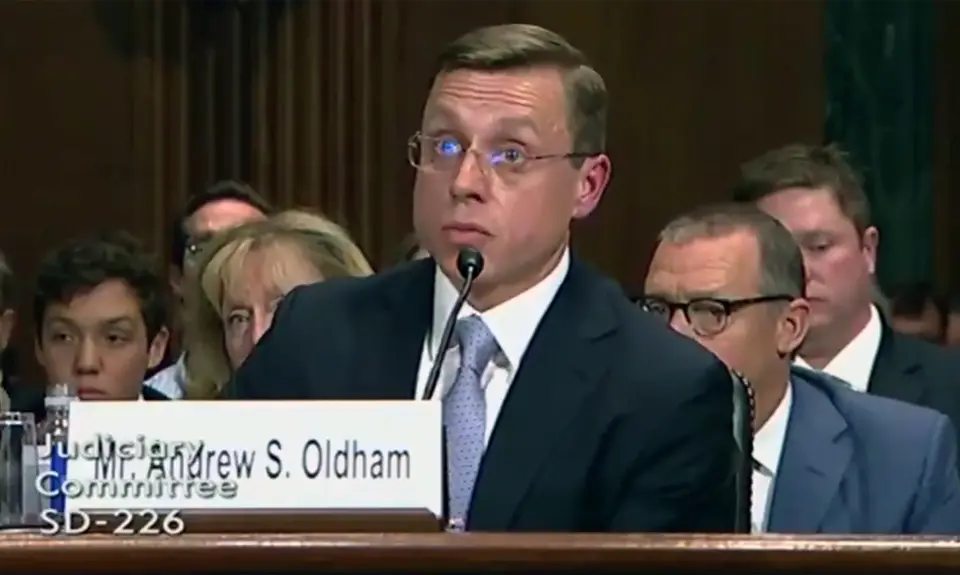“Confirmed Judges, Confirmed Fears” is a blog series documenting the harmful impact of President Trump’s judges on Americans’ rights and liberties.
In U.S. v. Smith in October, Trump 5th Circuit Court judge Andrew Oldham cast the deciding vote to uphold an individual’s increased sentence of more than a year, while ignoring facts that would have reduced his sentence. The dissent explained that the case should have been sent back to the lower court for resentencing.
James Smith pleaded guilty to being in possession of a firearm despite a prior conviction for a felony. In computing his sentence under the federal sentencing guidelines, the government added one point because of a previous California misdemeanor conviction for using or being under the influence of a controlled substance, which Smith argued shouldn’t be a factor in his sentencing. Specifically, he contended that the California offense was similar to the misdemeanor offense of “public intoxication,” which would not be a factor in increasing his sentence under the federal guidelines. The district court rejected his argument, claiming that California law “punishes use of illegal drugs,” in this case methamphetamines, “more severely” than “public intoxication by alcohol.” The 5th Circuit majority, including Oldham, agreed. They also rejected other arguments by Smith on appeal, including his contention that the elements of the California law were similar to other public intoxication laws and that the “level of culpability” was also similar, and thus affirmed the district court. The majority noted that this was a case of first impression concerning the California law in the 5th Circuit.
Judge James Graves strongly dissented. He explained that the majority offered “no support” for the claim that California punishes use of illegal drugs more severely than alcohol abuse. He pointed out that California law “clearly allows for the possibility of no jail time” for those under the influence of drugs; the California judgment against Smith had been “deferred” and instead of being sent to jail, he was “ordered to participate in drug court.” Graves also explained that the elements of the offenses were actually similar, as was the level of culpability required. In particular, he noted that the majority cited “no authority” for its claim that the California law also requires proof of “acquisition of a controlled illegal substance,” and that the statute contained “no such requirement.” Graves would have remanded the case back to the lower court for resentencing.
As a result of Oldham’s deciding vote, however, not only will Smith have to serve an additional year in prison, but others in the 5th Circuit with any prior misdemeanor conviction under the California controlled substance law will have their federal prison sentences increased.
PFAW legal intern Oliver Telsuma researched and prepared the initial draft of this blog post.
